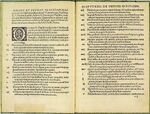| Protestantism |
Hussites • Lollards • Waldensians
Anabaptism • Anglicanism • Calvinism • Counter-Reformation • Lutheranism • Polish Brethren • Remonstrants |
The Five solas are five Latin phrases that emerged during the Protestant Reformation and summarize the Reformers' basic theological beliefs in contradistinction to the teaching of the Roman Catholic Church of the day. The Latin word sola means "alone" or "only" in English. The five solas articulated five fundamental beliefs of the Protestant Reformation, pillars which the Reformers believed to be essentials of the Christian life and practice.
Sola scriptura ("by Scripture alone")[]
Sola scriptura is the teaching that the Bible is the only inspired and authoritative word of God, is the only source for Christian doctrine, and is accessible to all—that is, it is perspicuous and self-interpreting. That the Bible requires no interpretation outside of itself is an idea directly opposed to the teaching of the Eastern Orthodox, Oriental Orthodox, Coptic, Anglo-Catholic, and Roman Catholic traditions, which teach that the Bible can be authentically interpreted only by Apostolic Tradition, this being for the Roman Catholic tradition embodied in the Magisterium, (that is the teaching authority embodied in Bishops in union with the Pope). Sola scriptura is sometimes called the formal principle of the Reformation, since it is the source and norm of the material principle, sola fide.
The adjective (sola) and the noun (scriptura) are in the ablative case rather than the nominative case to indicate that the Bible does not stand alone apart from God, but rather that it is the instrument of God by which he reveals himself for salvation through faith in Christ (solus Christus or solo Christo).
Sola fide ("by faith alone")[]
Sola fide is the teaching that justification (interpreted in Protestant theology as, "being declared right by God", and assumed to mean exactly "salvation"), is received by faith only, without any mixture of or need for good works, though in classical Protestant theology, saving faith is always evidenced by good works. Some Protestants see this doctrine as being summarized with the formula "Faith yields justification and good works" and as contrasted with the Roman Catholic formula "Faith and good works yield justification."
However, this is disputed by the Roman Catholic position as a misrepresentation; they claim it is better contrasted with a comparison of what is meant by the term "justification": both sides agree that the term invokes a communication of Christ's merits to sinners, not a declaration of sinlessness; Luther used the expression simul justus et peccator ("at the same time justified and a sinner"). Roman Catholicism sees justification as a communication of God's life to a human being, cleansing him of sin and transforming him truly into a son of God, so that it is not merely a declaration, but rather the soul is made actually objectively righteous. The Protestant response to this criticism is to state that this is a misrepresentation of their doctrines. Martin Luther taught that faith is not human response, but the work of God through the means of grace. Faith is the righteousness of God that is accomplished in us though word and sacraments. Law and gospel work to kill the sinful self and to accomplish the new creation within us. This new creation within us is the faith of Christ. If we do not have this faith, then we are ungodly. Indulgences or human prayers add nothing -- they are nothing. Everyone has some kind of faith -- usually a faith in themselves. But we need God to continually destroy self-righteous faith and to replace it with the life of Christ. We need the faith that comes from God through law and gospel, word and sacraments. In the founding document of the Reformation, the 95 Theses, Luther said that 1.) “When our Lord and Master Jesus Christ said, ‘Repent’ (Matthew 4:17) He willed the entire life of believers to be one of repentance.” and 95.) And thus be confident of entering into heaven through many tribulations rather than through the false security of peace (Acts 14:22).
The true distinction, therefore, between the Protestant and the Catholic view of Justification is not an issue of being "declared righteous" versus being "made righteous", but rather it is the means by which one is Justified. In Catholic theology righteous works are considered meritorious toward salvation in addition to faith, whereas in Protestant theology, righteous works are seen as the result and evidence of a truly Justified and Regenerate believer who has received these by Faith Alone. The actual effectual means by which a person receives Justification is also a fundamental division between Catholic and Protestant belief. In Catholic theology, the means by which Justification is applied to the soul is the Sacrament of Baptism. In Baptism, even of infants, the grace of Justification and Sanctification is "infused" into the soul, making the recipient Justified even before he has exercised his own faith, (or indeed in the case of an infant who is baptized, before he even has the ability to consciously understand the Gospel and respond with faith). In Catholic theology, faith is not a prerequisite to Justification. For the Catholic, baptism functions "ex operere operato", or "by the working of the act", and thus is the efficient and sufficient act to bring about Justification. In Protestant theology, however the Faith of the individual is absolutely necessary and is itself the efficient and sufficient response of the individual that effects Justification.
The Sola fide doctrine is sometimes called the material cause or principle of the Reformation because it was the central doctrinal issue for Martin Luther and the other reformers. Luther called it the "doctrine by which the church stands or falls" (Latin, articulus stantis et cadentis ecclesiae). This doctrine asserts the total exclusion of any other righteousness to justify the sinner other than the "alien" righteousness (righteousness of another) of Christ alone. Sola fide excludes even the sinner's own righteousness of Sanctification or his "new obedience" from his Justification.
Sola gratia ("by grace alone")[]
| Part of the series on Lutheranism | |

| |
| Luther's Seal | |
| History | |
|---|---|
|
Christianity | |
| People | |
|
Martin Luther · Philipp Melanchthon | |
| Book of Concord | |
|
Augsburg Confession | |
| Theology and Sacraments | |
|
Evangelical Catholic · Law and Gospel | |
| Liturgy and Worship | |
| Denominations | |
|
Lutheran World Federation | |
| Calvinism | |||
|---|---|---|---|

| |||
| John Calvin | |||
| |||
| |||
| |||
| |||
| |||
| |||
| Calvinism portal | |||
Sola gratia is the teaching that salvation comes by God's grace or "unmerited favor" only — not as something merited by the sinner. This means that salvation is an unearned gift from God for Jesus' sake. While some maintain that this doctrine is the opposite of "works' righteousness" and conflicts with some of the aspects of the Roman Catholic doctrine of merit, it might be asserted that this article, taken at face value, conflicts in no way with Roman Catholic teaching; while the doctrine that grace is truly and always a gift of God is held in agreement between both views, the difference in doctrine lies mainly in two facts: that of God as sole actor in grace (in other words, that grace is always efficacious without any cooperation by man), and second, that man cannot by any action of his own, acting under the influence of grace, cooperate with grace to "merit" greater graces for himself (the latter would be the doctrine of the Roman Catholic Church). This doctrine asserts divine monergism in salvation: God acts alone to save the sinner. The responsibility for salvation does not rest on the sinner to any degree as in "synergism" or Arminianism. Lutheranism holds that this doctrine must not be maintained to the exclusion of gratia universalis (that God seriously wills the salvation of all people).
Solus Christus or Solo Christo ("Christ alone" or "through Christ alone")[]
Solus Christus is the teaching that Christ is the only mediator between God and man, and that there is salvation through no other (hence, the phrase is sometimes rendered in the ablative case, solo Christo, meaning that salvation is "by Christ alone"). While rejecting all other mediators between God and man, classical Lutheranism continues to honor the memory of the Virgin Mary and other exemplary saints. This principle rejects "sacerdotalism," which is the belief that there are no sacraments in the church without the services of priests ordained by apostolic succession under the authority of the pope. Martin Luther taught the "general priesthood of the baptized," which was modified in later Lutheranism and classical Protestant theology into "the priesthood of all believers," denying the exclusive use of the title "priest" (Latin, sacerdos) to the clergy. This principle does not deny the office of the holy ministry to which is committed the public proclamation of the Gospel and the administration of the sacraments. In this way, Luther in his Small Catechism could speak of the role of "a confessor" to confer sacramental absolution on a penitent. The section in this catechism known as "The Office of the Keys" (not written by Luther but added with his approval) identifies the "called ministers of Christ" as being the ones who exercise the binding and loosing of absolution and excommunication through Law and Gospel ministry. This is laid out in the Lutheran formula of holy absolution: the "called and ordained servant of the Word" forgives penitents' sins (speaks Christ's words of forgiveness: "I forgive you all your sins") without any addition of penances or satisfactions and not as an interceding or mediating "priest," but "by virtue of [his] office as a called and ordained servant of the Word" and "in the stead and by the command of [his] Lord Jesus Christ" [The Lutheran Hymnal, (St. Louis: Concordia Publishing House, 1941), p. 16]. In this tradition absolution reconciles the penitent with God directly through faith in Christ's forgiveness rather than with the priest and the church as mediating entities between the penitent and God.
Soli Deo gloria ("glory to God alone")[]
Soli Deo gloria is the teaching that all glory is to be due to God alone, since salvation is accomplished solely through His will and action — not only the gift of the all-sufficient atonement of Jesus on the cross but also the gift of faith in that atonement, created in the heart of the believer by the Holy Spirit. The reformers believed that human beings—even saints canonized by the Roman Catholic Church, the popes, and the ecclesiastical hierarchy—are not worthy of the glory that was accorded them. That is that one should not exalt such humans for their good works, but rather praise and give glory to God who is the author and sanctifier of these people and their good works.
External links[]
- Articles on the Five Solas — from a conservative Calvinistic perspective
- The Five Solas of the Reformation — a series of sermon notes on the Five Solas.
- FiveSolas.com — a Reformed page devoted to the Solas
- "What do Lutherans believe?" — a Lutheran exposition of three of the solas
ca:Cinc punts de la teologia protestant
eo:Kvin solaĵoj (protestantismo)
ko:다섯 Sola
ia:Cinque solas
hu:Az öt sola
pt:Cinco solas
ro:Cele cinci sola
ru:Доктрины протестантизма
simple:Five solas
fi:Viisi protestanttisen reformaation pääperiaatetta
vi:Năm Tín lý Duy nhất
